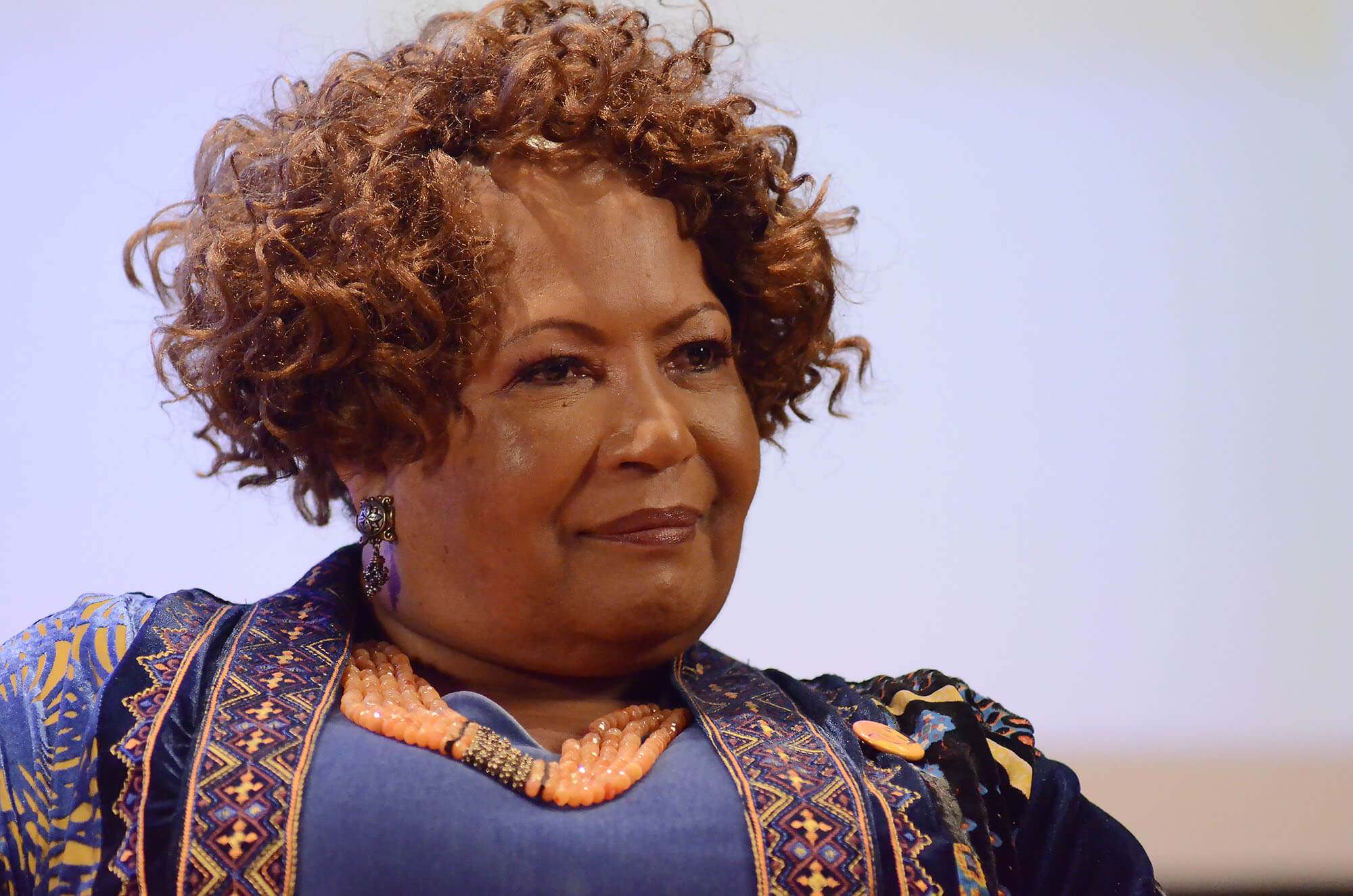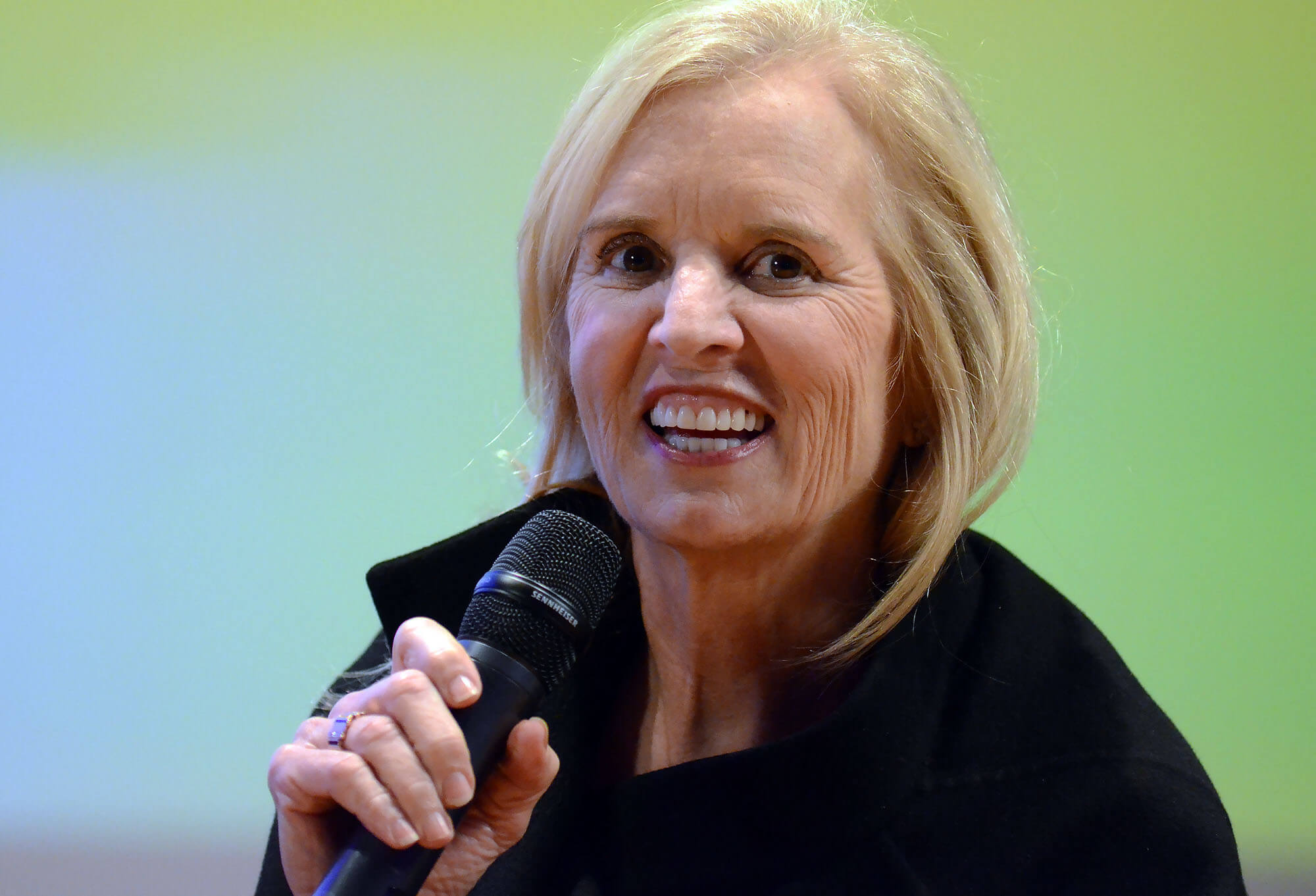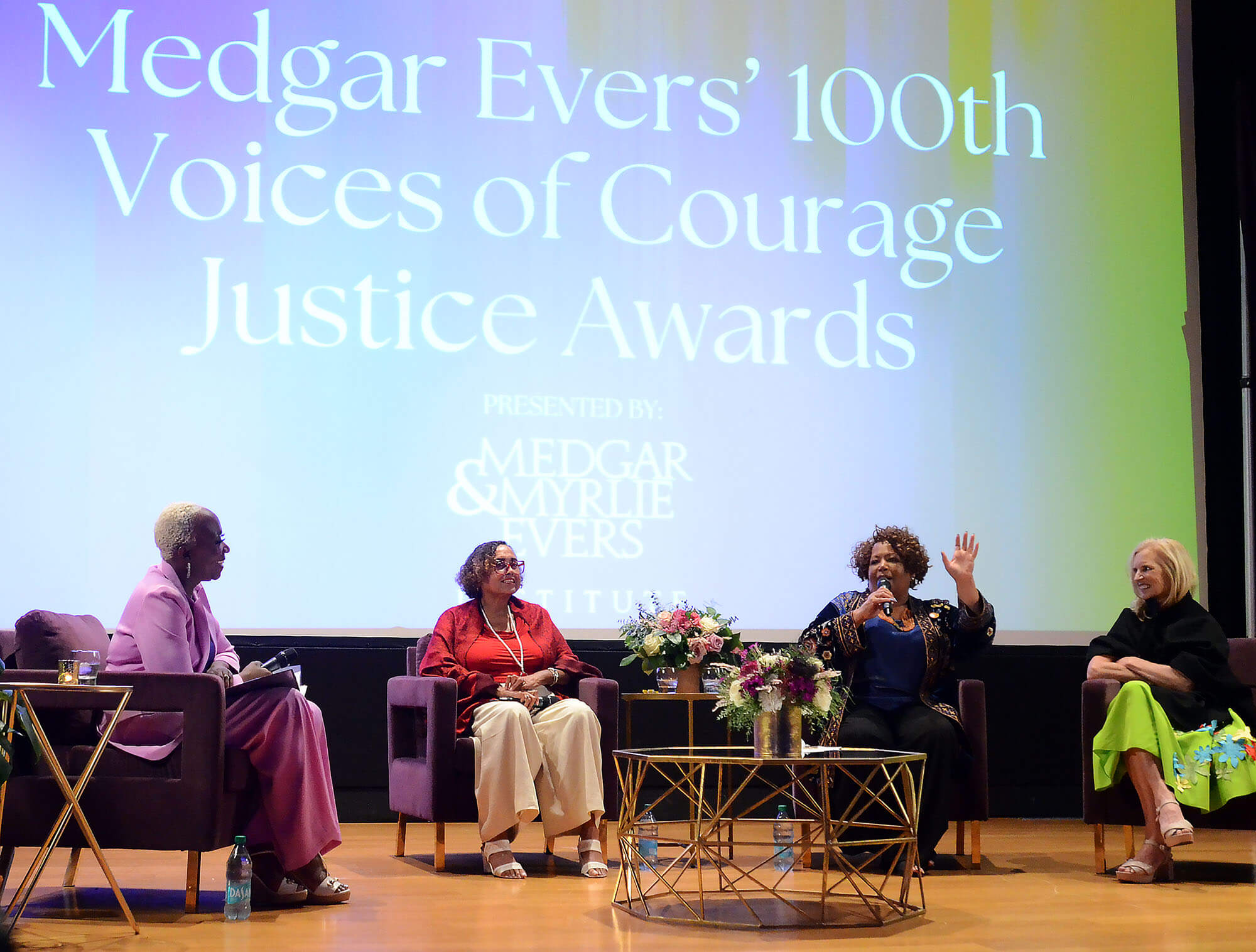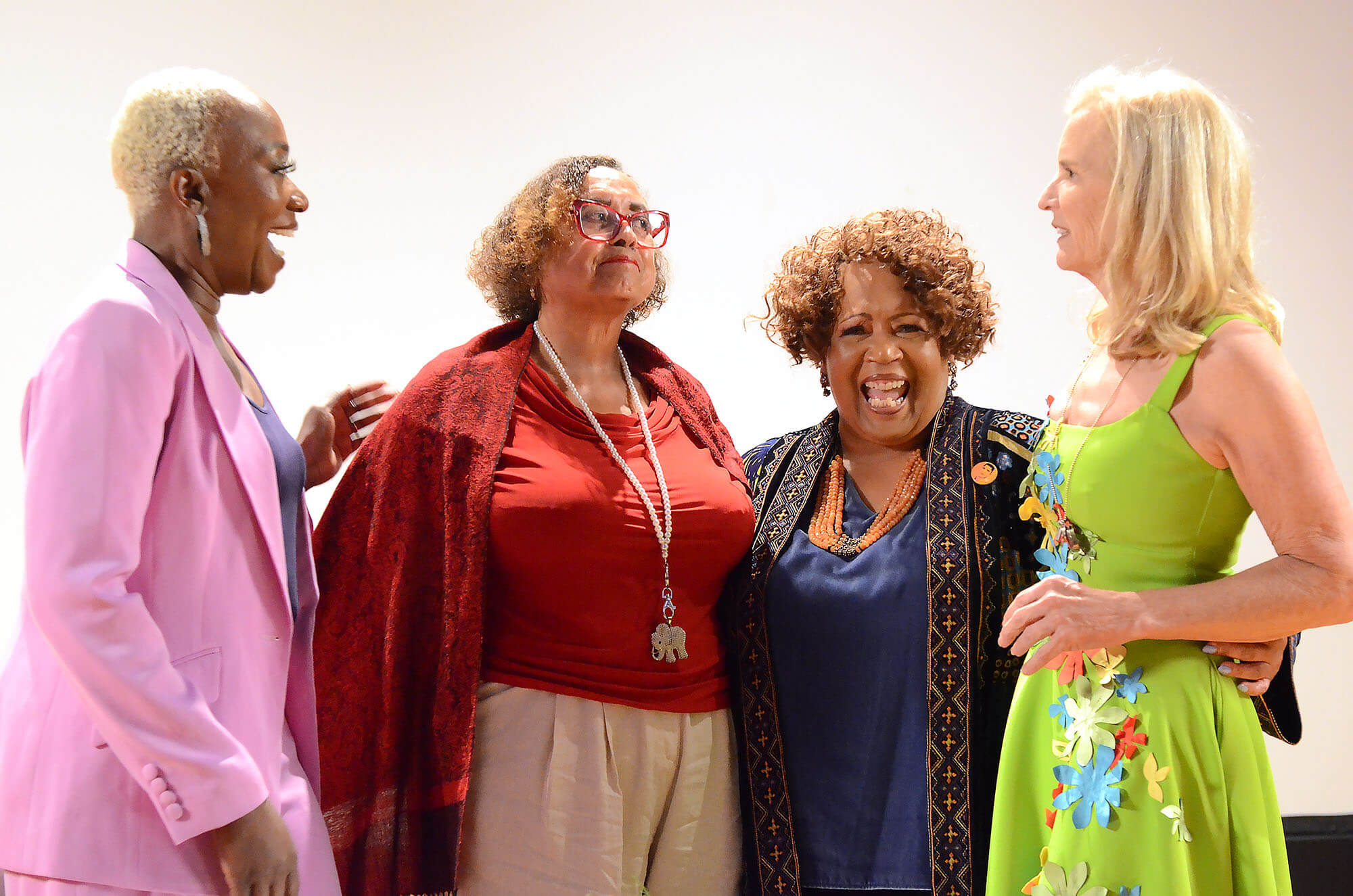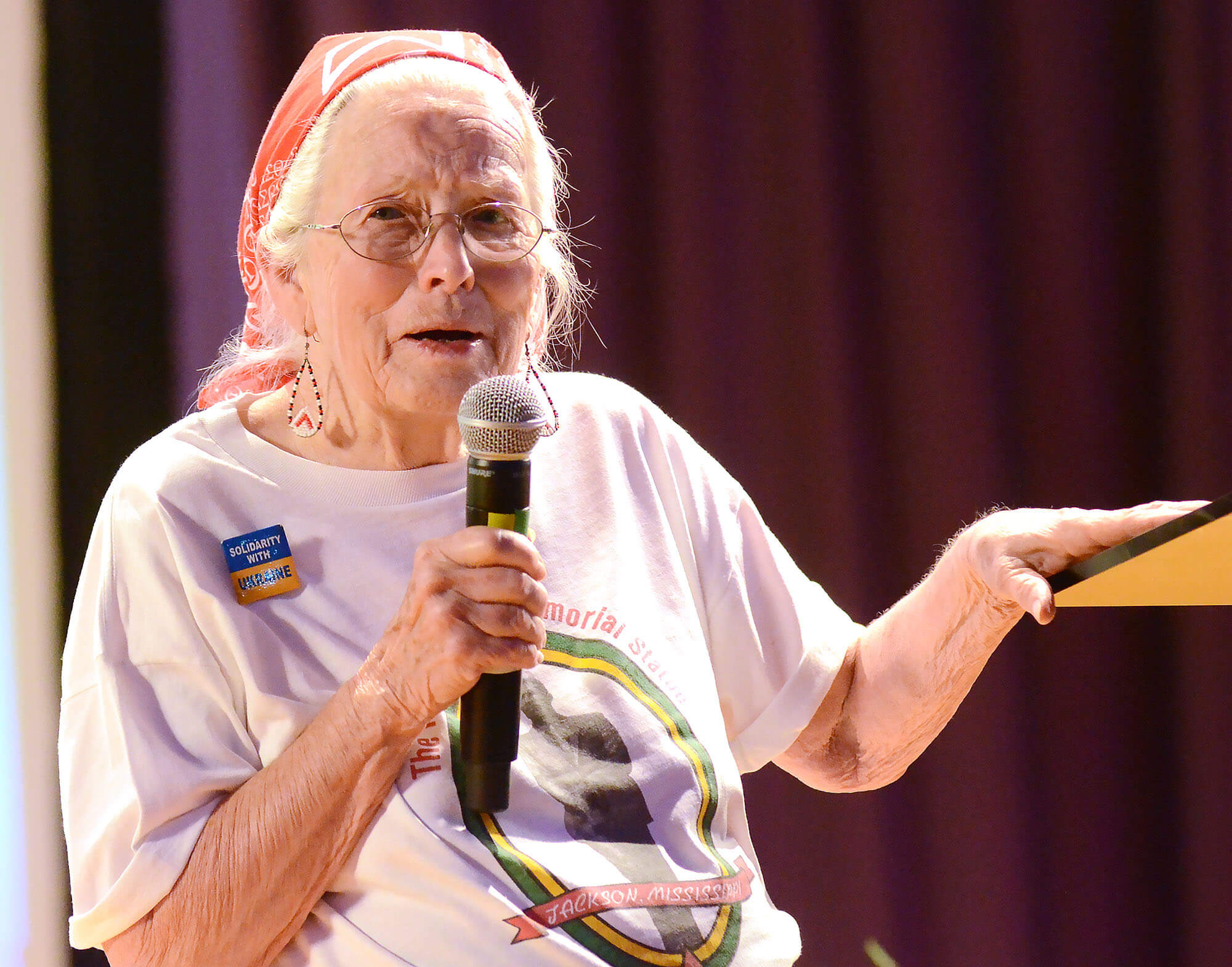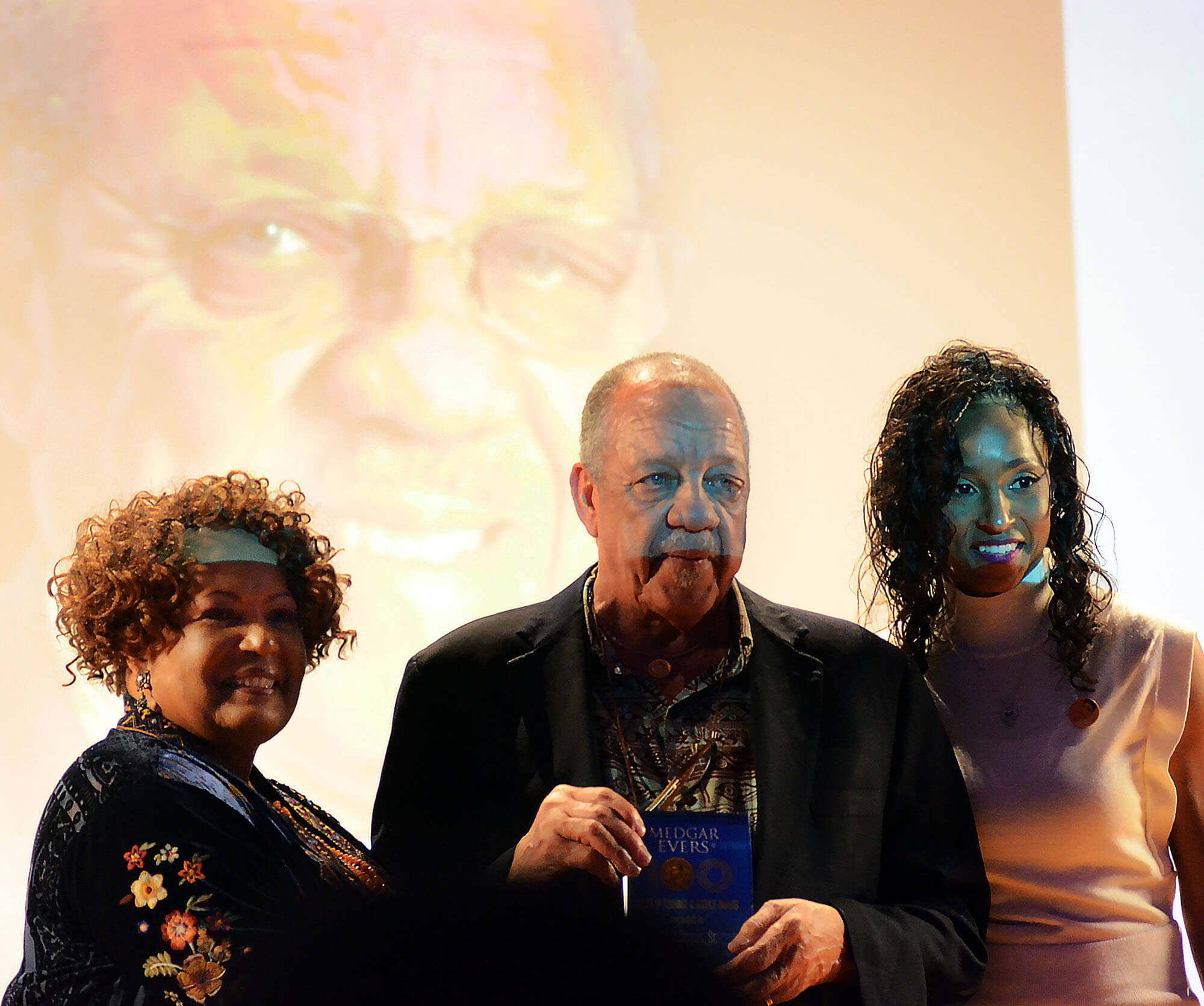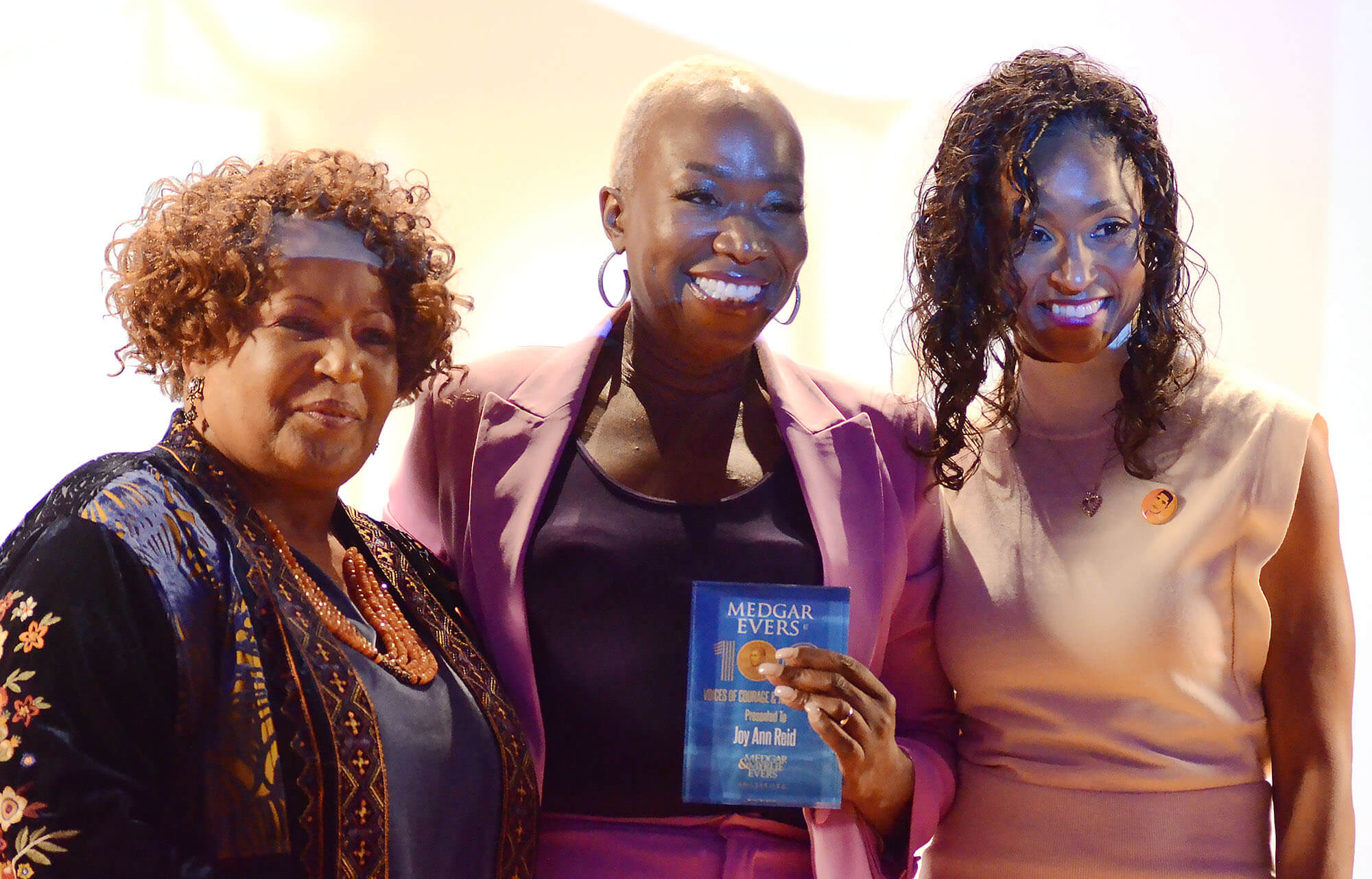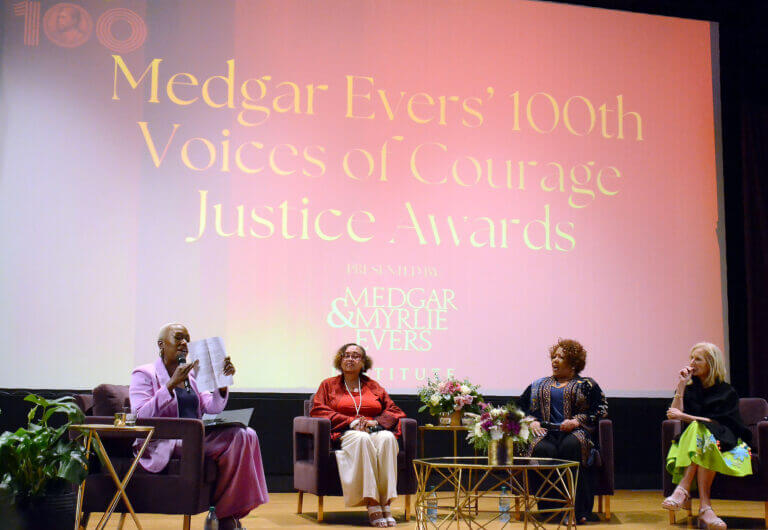
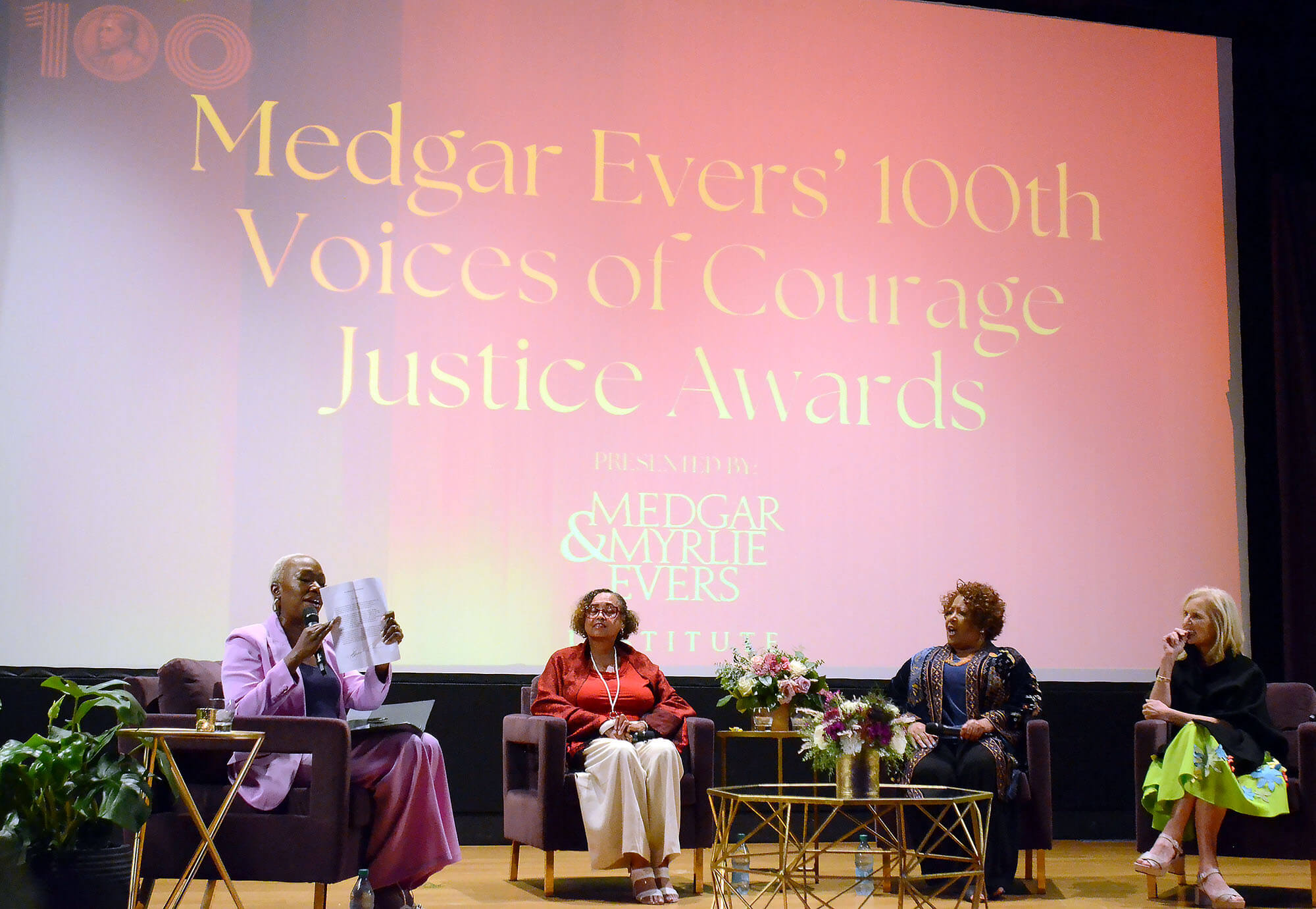
Neighborhood kids loved civil rights hero Medgar Evers. As he drove down the street, they called his name and begged him to play football. His daughter, Reena, was the weight on her father’s ankles when he did sit-ups. They watched “Popeye” together.
“He would go to a record player and put on a 33 with Chubby Checker, and he would twist the night away,” Reena Evers-Everette recalled.
Those were just a few of the details shared at the Daddys’ Daughters Panel on Thursday night, an event where daughters of men killed while at the center of the civil rights movement shared intimate stories about life with their fathers.
Panelists included Reena Evers-Everette, daughter of Mississippi NAACP Field Secretary Medgar Evers, Bettie Dahmer, daughter of Vernon Dahmer, and Kerry Kennedy, daughter of the late Sen. Robert F. Kennedy.
Joy Reid, political commentator and former MSNBC national correspondent, moderated the panel, one of a series of events honoring the legacy of Medgar Evers.
Reid also joined writer and professor W. Ralph Eubanks on Friday to discuss ‘The Power of the Word.’” Moderated by Ebony Lamumba, the panel explored the role of storytelling in the fight for racial justice.
All the “daughters” panelists shared memories about their fathers.
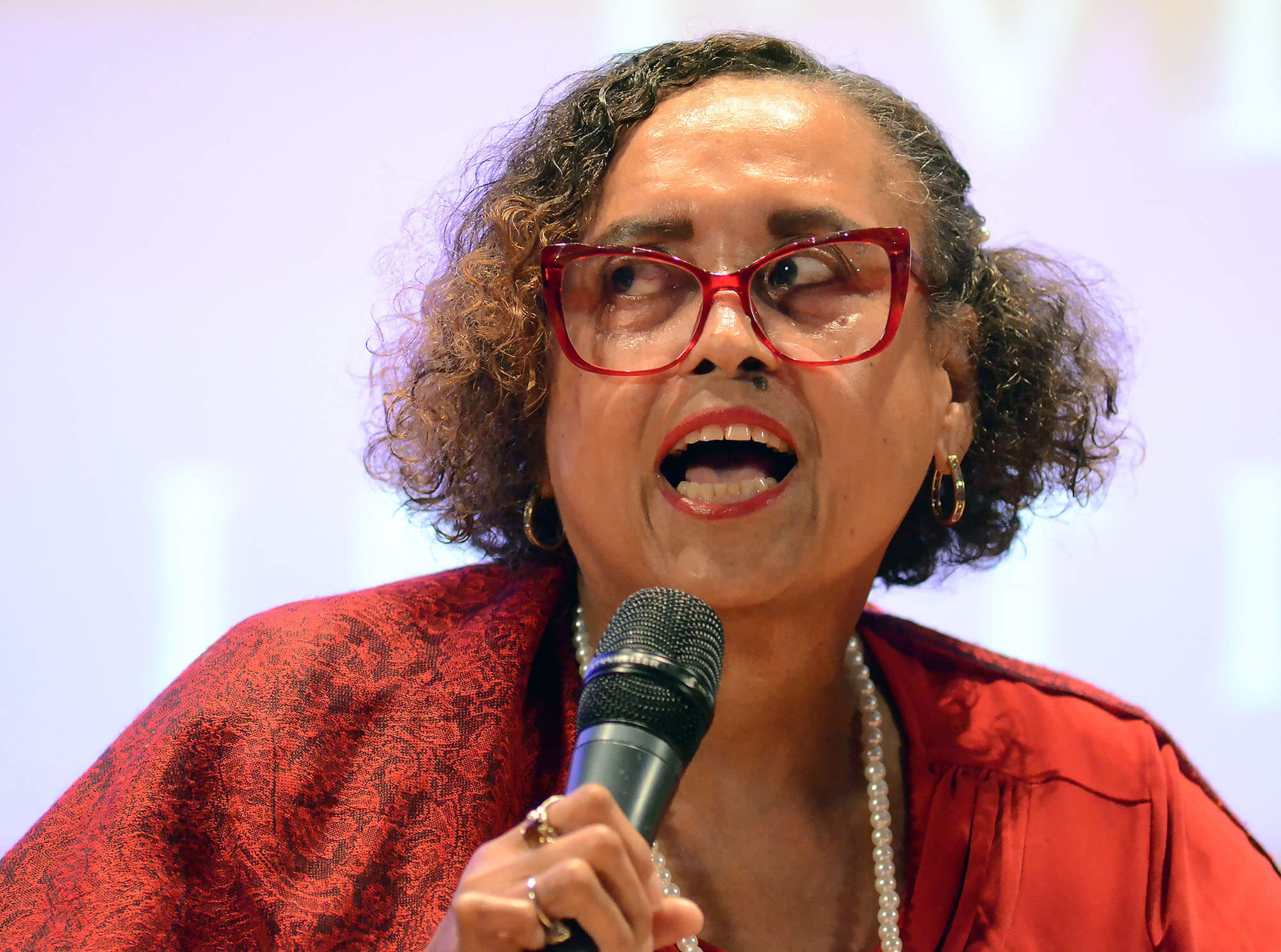
Vernon Dahmer, who was murdered after offering to pay poll taxes for African Americans in Forrest County so they could vote, played make believe with her tea set and taught her how to drive a standard shift truck, Bettie Dahmer said.
His house was a refuge for the local community. He hosted Fourth of July picnics and allowed Boy Scout troops to camp on his land.
“It was safe,” Bettie Dahmer said. “We had other places where kids could come and be safe.”
That was until Jan. 10, 1966, when Klansmen attacked their home near Hattiesburg while the family slept, firing guns into the home. Vernon Dahmer grabbed his shotgun and fired back, enabling his family to escape out a back window, but flames from the blaze seared his lungs. He died a day later.
Evers-Everette, whose father was shot in the back in the driveway of their Jackson home on June 12, 1963, says she was her father’s “princess.”
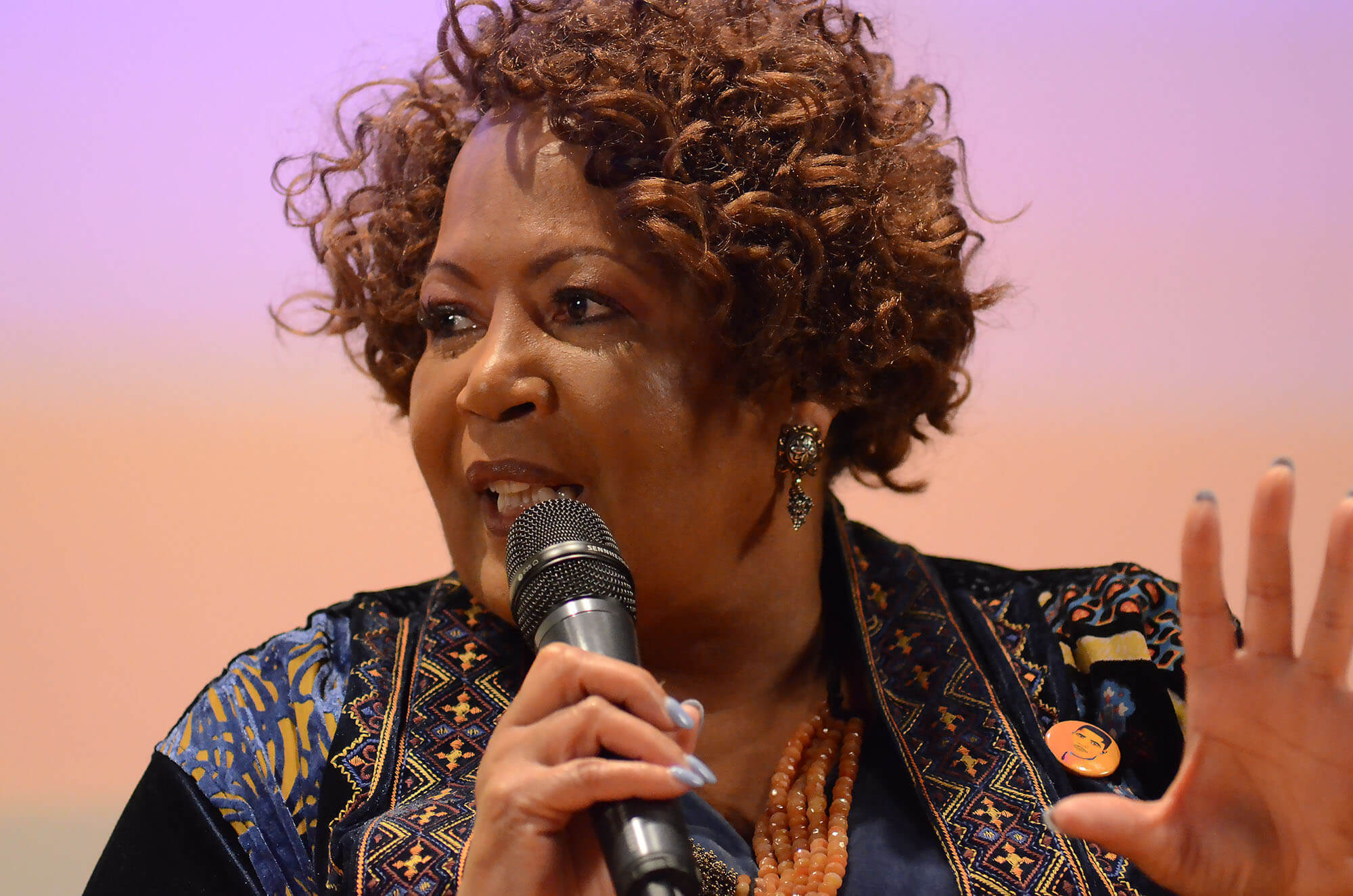
“Love is what resonates throughout my life, because that’s what I grew up with and that’s what my father instilled in us,” she said.
The panelists spent time honoring their mothers. Years after her father was murdered for fighting for voting rights, Bettie Dahmer’s mother Ellie would serve as an election commissioner.
Evers-Everette credits her mother, Myrlie Evers, with the phrase “You can kill a man, but you can’t kill an idea.”
Myrlie Evers later served as chairman of the NAACP.
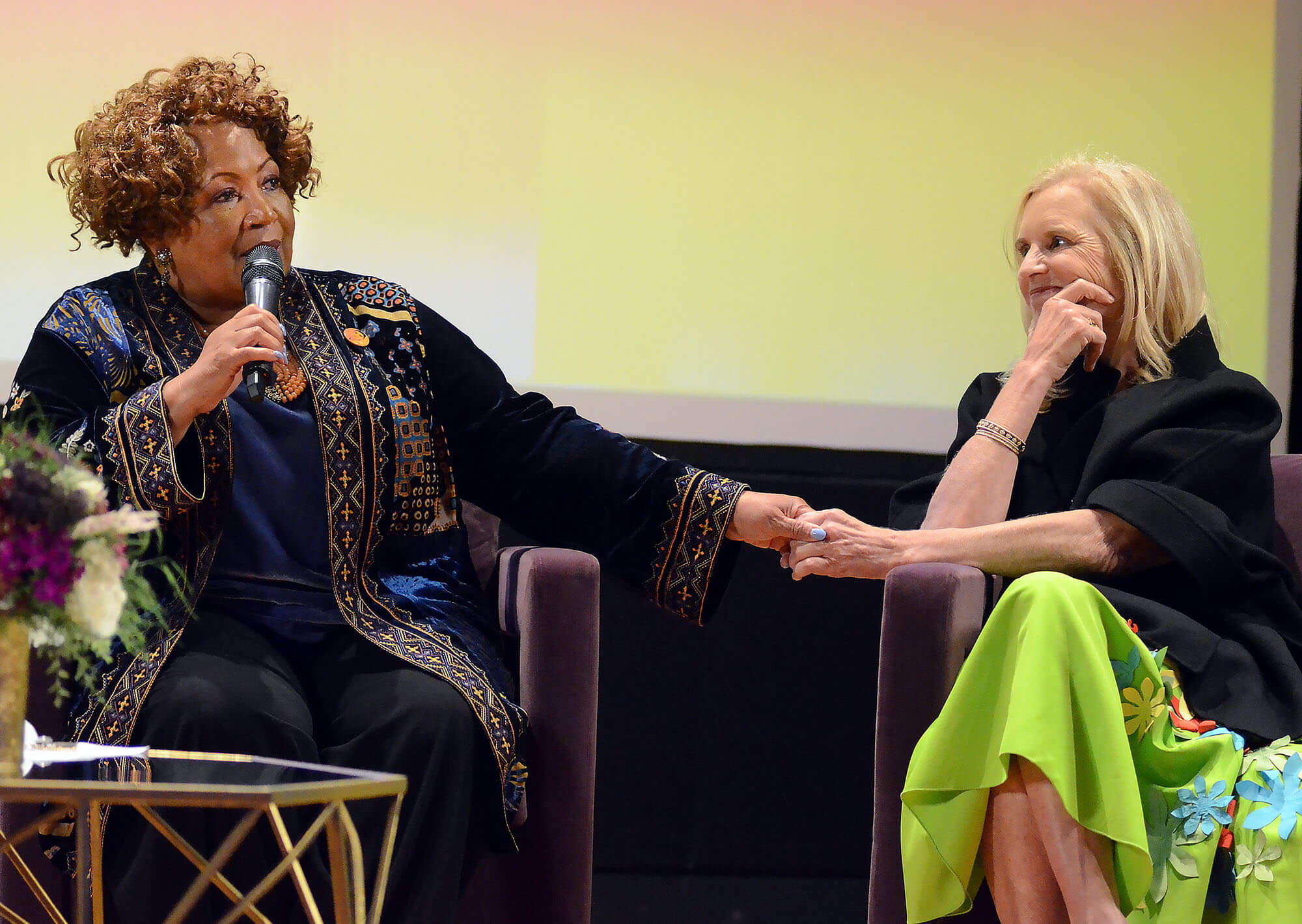
Kerry Kennedy said her father, who as U.S. attorney general enforced civil rights legislation and as a senator advocated for voting rights and against discrimination, ran towards fires started during a civil rights protest instead of watching them on TV. He was assassinated after winning the California Democratic primary for president in 1968. Kerry Kennedy argued that Americans should adopt the stance her father had about taking action.
“We need our country today to run into the flames,” said Kerry Kennedy. “Because our country is on fire.”
The daughters talked about how to continue the legacies of their fathers and mothers.
“I hope each and every one of you understands the importance of the vote. It’s not just going and doing a checkmark. It’s a checkmark for your life,” Evers-Everette said.
She hoped attendees would “remember that.”
“If you honor them, and you honor our fathers and our mothers — do something about it,” she said.
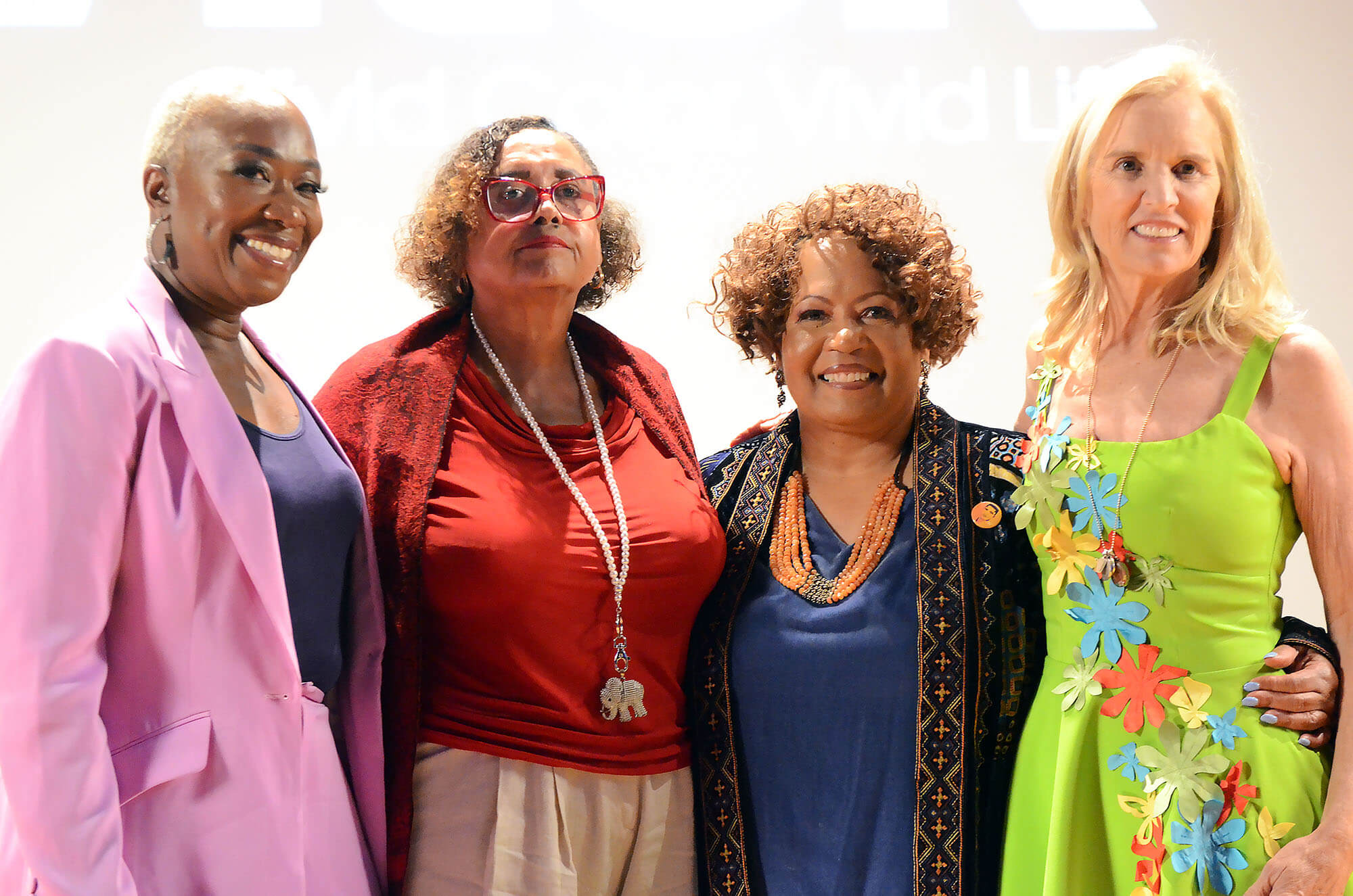
At the Panel of the Word, Reid, who wrote a biography of Medgar and Myrlie Evers, also spoke on the Pentagon’s proposal to’ rename the Navy cargo ship USNS Medgar Evers and the renaming of the oiler USNS Harvey Milk as the USNS Oscar Peterson.
Reid described history as “a series of stories of people who, through their resilience, survived enslavement, survived Jim Crow, survived hate, survived fear, and survived the abandonment of the federal government of our communities, and their stories collectively are what make history.”
“And so, when you don’t know the impact of those stories, it’s easy to do a thing like strip Harvey Milk’s name off of a Navy battleship…threaten to do the same to USNS Medgar Evers,” she said.
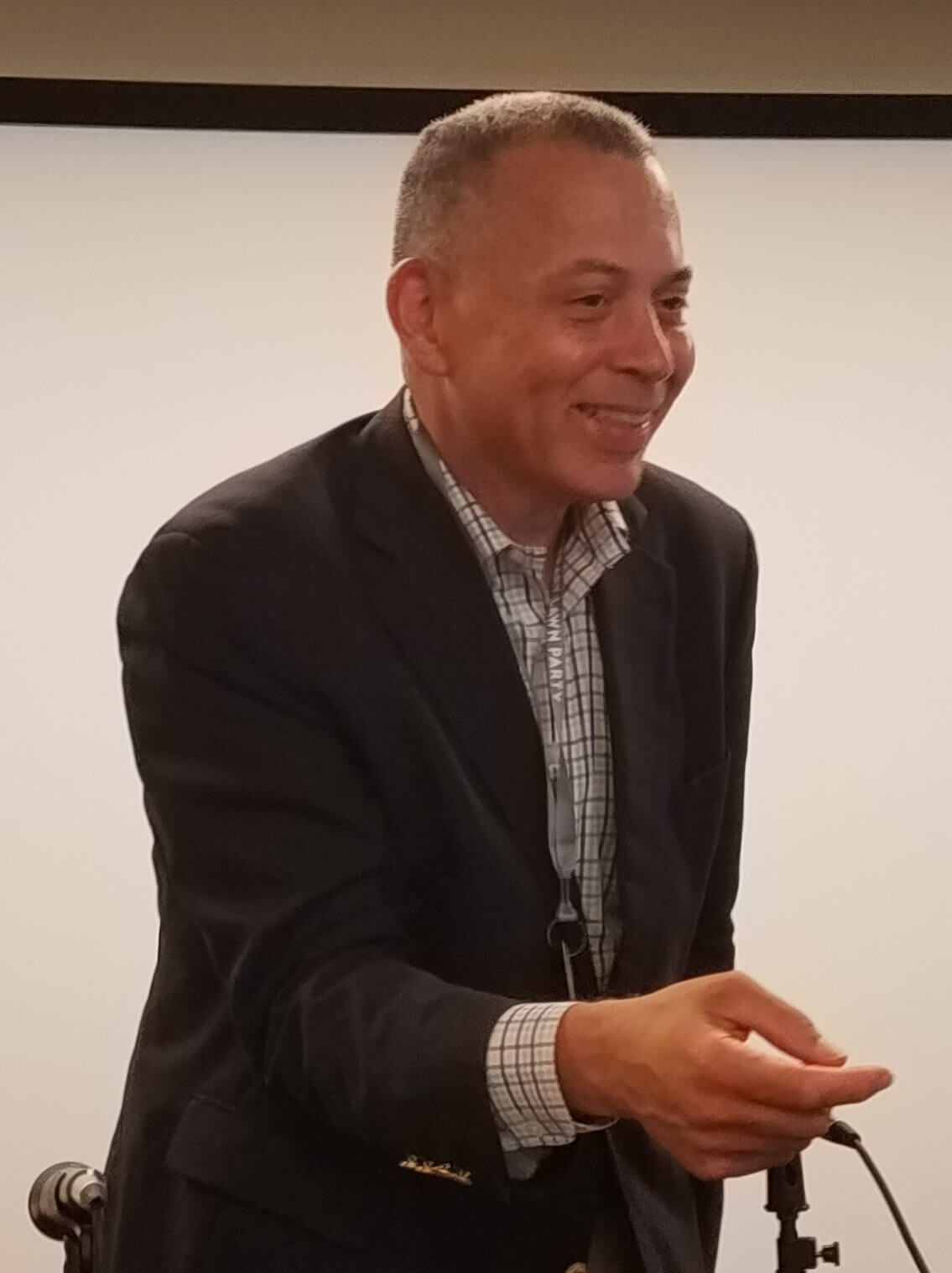
Referring to scholar Chimamanda Ngozi Adichie’s concept of “the single story,” Eubanks warned about anti-Diversity, Equity and Inclusion backlash in classrooms. “What is being imposed on us is — trying to impose on us — is a single story, and there is a real danger in that,” he said.
“I mean, think about what is happening with the DEI legislation in this state…Oxford, Mississippi, has 45 working writers, and…probably half of their work, including my own, could be banned,” he said.
Eubanks referred to the state’s new anti-DEI law, which prohibits public schools and state colleges and universities from a variety of practices related to DEI. This includes engaging in “divisive concepts.” The American Civil Liberties Union of Mississippi and several other civil rights groups filed a federal lawsuit challenging the law. A federal judge is considering issuing a restraining order to block the law from going into effect.
Answering an audience member’s question, Reid and Eubanks both spoke on how Mississippi and the South are precursors to current national policies.
“So what’s happened is these Southern states have developed a version of what we’re now facing nationally, and so the shock is north of the Mason-Dixon line,” said Reid.
“We’re all living in Mississippi now,” said Eubanks. “Everybody in this county has at least one foot in Mississippi whether they want to admit it or not.”
- Mississippi Marketplace: data center ups and downs, alcohol shortages and new manufacturing projects - February 19, 2026
- More Mississippi students are graduating despite pandemic-era disruptions, new data shows - February 19, 2026
- Education advocates says Mississippi needs honest, nuanced school choice discussion - February 19, 2026
